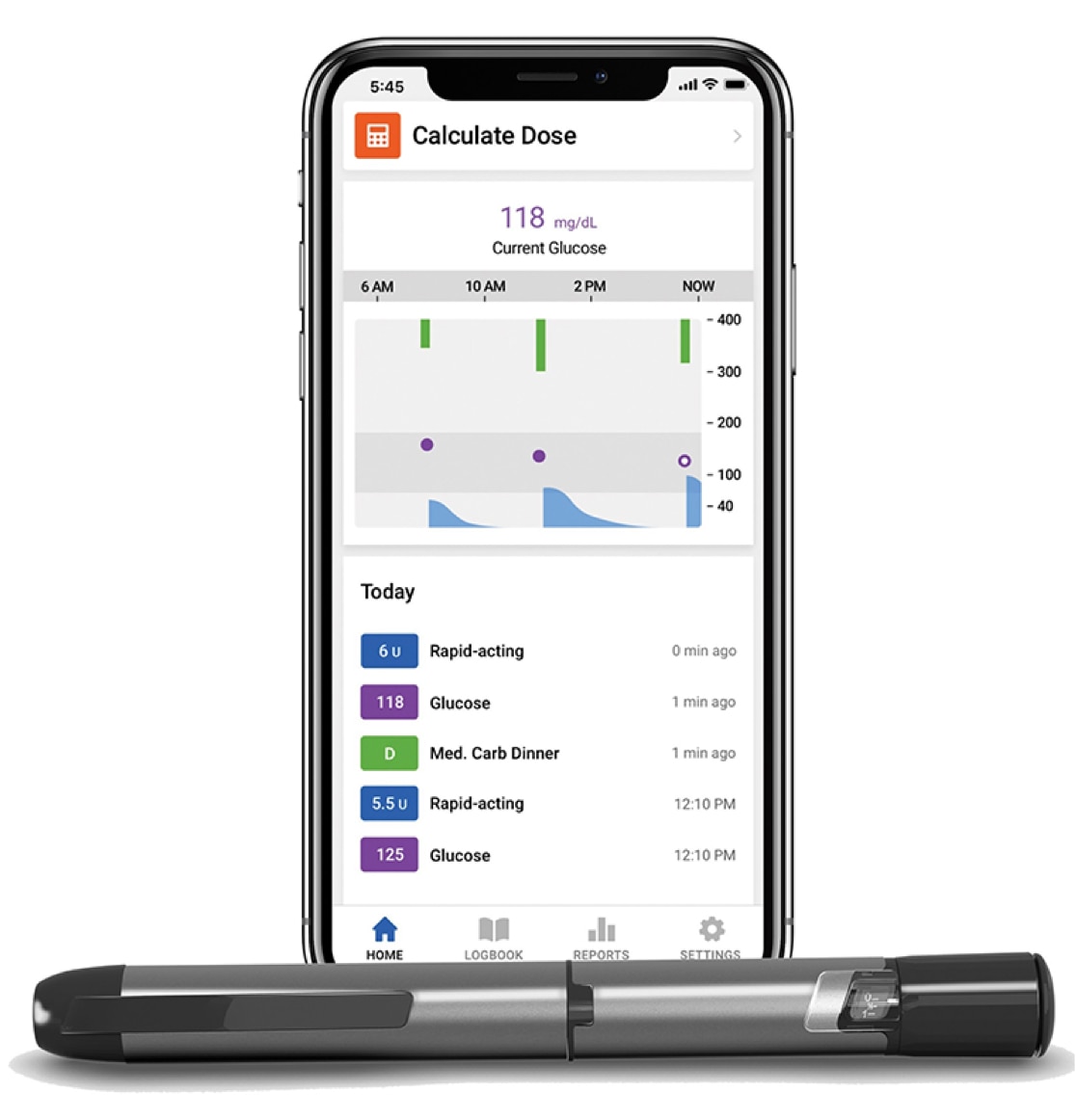
When ordinary is extraordinary
Personalized diabetes care
Technology is helping to simplify diabetes management — so people can live every day their way.
This individual was compensated by Medtronic for their time. Their thoughts and opinions are their own.
The smart choice
Diabetes is a demanding disease that requires meticulous management, as people have to monitor and maintain healthy insulin levels throughout their day. Medtronic offers technology that lessens the burden of the disease, providing people like Iaishia Smith a smart choice for daily diabetes care.
When the unimaginable happens
Iaishia’s diabetes journey aligns with her pathway to motherhood. She and her husband had just settled into their suburban New Jersey home when she learned she was pregnant with a baby girl. But at 38 weeks, she went to her doctor for a routine visit and was told the unimaginable — no heartbeat was detected. Hours later her daughter was stillborn. “It was devastating. My husband and I were absolutely crushed,” Iaishia said. Tests at the hospital revealed she had an elevated A1C, a measurement of blood glucose. She’d had gestational diabetes that went undiagnosed.
Iaishia and her husband remained committed to starting a family, and 18 months later she discovered she was pregnant with a son. This time, Iaishia was diagnosed with gestational diabetes, a condition where the expectant mother’s blood sugar levels become high. She compared the symptoms to her previous pregnancy — swollen feet, unquenchable thirst, and extreme fatigue — and realized they were all consistent diabetes indicators.1 Iaishia partnered with her clinician to begin taking medication and using insulin to help ensure her son had a healthy birth.
She continued to have symptoms postpartum and was soon diagnosed with type 2 diabetes. African Americans have a high risk of the disease2 and as a Black woman, Iaishia never challenged the diagnosis.

But her doctor concluded her glucose levels were inconsistent with type 2 and further tests revealed Iaishia actually has type 1 diabetes, an autoimmune disease that is less common.3 “It was a shock,” she said. “Another blow. It’s like my pancreas went on vacation.”
Life management
Iaishia takes managing type 1 diabetes seriously and acknowledges it is a demanding job. “When you have type 1 diabetes, you become a mathematician — taking assessments of your blood sugar, how many carbs to eat, and doing calculations of insulin to administer. It’s a lot.” Not getting a dose right could mean your blood sugar gets too high, which for Iaishia means numbing headaches. Missing a dose can lead to low levels, which has led her to have blurred vision and even faint. As a corporate program manager, Iaishia recognized the need for the right support in managing the disease. Her doctor prescribed the InPen™ smart insulin pen, which uses Bluetooth™* technology to send dose information to a mobile app. It does the calculations, makes recommendations, and provides a less complicated way to manage diabetes.

Technology to tackle the challenges
The InPen™ was designed for people living with diabetes who weren’t using the insulin pump and who need more daily guidance for the disease. Mike Mensinger, Vice President of Companion R&D engineering, created the InPen™ with his business partner — who lives with type 1 diabetes — a few years before Medtronic acquired the company. Mike said their resolve to make diabetes management less burdensome for people was personal. “Because we had a CEO with diabetes, we knew the challenges,” he said. “Ultimately, the goal was to create an insulin pen that takes the guesswork out of insulin injection.” After two years of testing and analysis, they developed the first InPen™. Driven by a sense of purpose, they sold about 30 products their first month and stayed closely connected with users, whose feedback helped create the version used today. Unlike other insulin pens, InPen™ creates shareable reports with time-based analysis, information healthcare providers can use to optimize patient care.

The only one of its kind
InPen™ is the first smart insulin pen system that tracks active insulin and uses Bluetooth™* technology to send dose information to a mobile app. The internal calculator then recommends a personalized dose based on blood glucose, carbohydrate consumption, and active insulin. The calculator is also uniquely customizable to account for each user’s diet and lifestyle. InPen™ is helping people balance proper diabetes care with the normal demands of everyday life.
A management tool
Dr. Rocio Harbison, an endocrinologist based in Houston, Texas, has researched the impact of InPen™ and smart diabetes technology4 — and knew the technology was the answer for many of her patients’ concerns. Harbison said, “one of my diabetes patients wasn’t following any of my recommendations. She learned through InPen™ how and when to make insulin adjustments. And it turned out to be life-saving.” Harbison, who has been in the field for 18 years, can access her patients’ provided data and advise them on what adjustments need to be made. For so many of Harbison’s patients, diabetes is emotional; they have told her about the fear of inaccurate dosing, for example, which could lead to severe complications like renal disease. So trust is critical. With InPen™ the patient-specific information prioritizes each individual’s care.

A new way of life
Since confirming her diagnosis last year, Iaishia has started a new life with diabetes. She’s an active mother to a healthy 2-year-old boy. And after enduring the shock and uncertainty of her initial diagnosis, Iaishia now leads a diabetes employee resource group at work. She says InPen™ has put her back in control of a life that spun out for a while. “I feel empowered, so I want to empower, uplift, and educate others,” she said, “because this is who I am.”
This testimonial is one individual’s experience and does not provide any indication, guide, warranty, or guarantee as to the response or experience other people may have using the device. Experiences can and do vary. Please talk to your doctor about your condition and the risks and benefits of Medtronic devices.
NOTE: InPen is not specifically indicated for use during pregnancy. If you are pregnant, talk to your healthcare professional before using InPen.
IMPORTANT: The InPen requires a prescription. It is a home-use reusable pen injector for single-patient use by people with diabetes under the supervision of an adult caregiver, or by a patient age 7 and older for the self-injection of a desired dose of insulin. The pen injector is compatible with Lilly Humalog® U-100 3.0 mL cartridges, Novo Nordisk Novolog® U-100 3.0 mL cartridges, and Novo Nordisk Fiasp® U-100 3.0 mL cartridges and single-use detachable and disposable pen needles (not included). The pen injector allows the user to dial the desired dose from 0.5 to 30 units in one-half (1/2) unit increments.
The InPen dose calculator, a component of the InPen app, is indicated for the management of diabetes by people with diabetes under the supervision of an adult caregiver, or by a patient age 7 and older for calculating an insulin dose or carbohydrate intake based on user entered data.
For an insulin dose based on amount of carbohydrates, a healthcare professional must provide patient-specific target blood glucose, insulin-to-carbohydrate ratio, and insulin sensitivity parameters to be programmed into the software prior to use.
For an insulin dose based on fixed/variable meal sizes, a healthcare professional must provide patient-specific fixed doses/meal sizes to be programmed into the software prior to use.
For additional product and important safety considerations, see User Guide and http://bit.ly/InPenSafety.
Refer to www.medtronicdiabetes.com for product manuals for complete indications, contraindications, warnings, precautions and potential adverse events.
* The Bluetooth® word mark and logos are registered trademarks owned by Bluetooth SIG, Inc. and any use of such marks by Medtronic is under license.
- Mayo Clinic Staff. Diabetes symptoms: When diabetes symptoms are a concern. https://www.mayoclinic.org/diseases-conditions/diabetes/in-depth/diabetes-symptoms/art-20044248. Published June 3, 2021. Accessed November 2021.
- Marshall MC. Diabetes in African Americans. Postgrad Med J. 2005; 81(962): 734–740. doi: 10.1136/pgmj.2004.028274
- Centers for Disease Control and Prevention. What is type 1 diabetes? https://www.cdc.gov/diabetes/basics/what-is-type-1-diabetes.html. Last reviewed March 25, 2021.
- Harbison R, Hecht M, MacLeod J. Building a data-driven multiple daily insulin therapy model using smart insulin pens [published online ahead of print, 2020 Aug 24]. J Diabetes Sci Technol; 2020.


